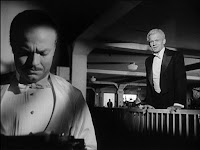Muckraking is something that I personally have never heard of until this class. I knew it was a kind of a journalism, but I had completely forgotten about it. The word sounds kind of dirty, but that is because it is all about getting down to the facts.
So what is a muckraker? Muckrakers were writers, often journalists, who tried to expose the multiple problems that existed in American society as a result of the rise of big business, urbanization, and immigration.
The term was coined during the Progressive Era in the United States. Theodore Roosevelt first used the terms because he compared the writers to people stirring up the mud at the bottom of a pond.
Muckrakers usually stirred the pot in terms of issues and because of that they were very popular. Instead of muckrakers, we now call this kind of writing investigative or watchdog journalism.
There were multiple muckraking magazines and they took on multiple issues such as urban poverty, prostitution, child labor, and unsafe working conditions.
 |
| Modern Day Cartoon on Muckraking |
Sinclair was having trouble publishing any of his works prior to The Jungle. He heard that the meat-packing union in Chicago had gone on strike and decided to go out there and examine why.
Throughout his multiple interviews with the workers and their families, he quickly learned that the working conditions were not acceptable and he needed to expose it.
The Jungle is a fictionalized account that brings awareness to the brutality of the meat-packing business. He included that the workers were not treated well at all and the horrors of working in an assembly line.
If a worker was injured working an assembly line, there was so compensation.
Sinclair talked about how the meat was diseased, rotten, and contaminated. He also said that the meat was heavily processed, doctored by chemicals and mislabeled for sale to the public.
Dead, injured and diseased animals were processed after hours when no inspectors were around which is absolutely horrifying. Scraps of meat were labeled as "potted chicken."
| The Jungle |
The workers would mix dead rats, spit, rat poison, urine and feces in with the sausage meat.
All of this led to public outrage. His book automatically became a bestseller and was sold in 17 different languages.
Sinclair was upset that the public was more upset bu the gross meat than they were about the treatment of the workers. Sinclair famously states "I aimed at the public's heart and by accident I hit it in the stomach."
President Roosevelt invited Sinclair to the White House to discuss his book, because the public outrage had become so intense.
Roosevelt commissioned a special committee to investigate Chicago's slaughterhouses and to everyones dismay all of the claims were correct.
When the commissioners were investigating, they witnessed a slaughtered hog that fell into the toilet. The workers then took it out without cleaning it and put it back on the assembly line.
The Meat Inspection Act of 1906 got passed which expanded federal government regulation of private enterprise. The meat packers won a provision in the law requiring the federal government to pay for the meat inspection.
Sinclair's muckraking led to the formation of the deferral Food and Drug Administration which greatly improved the quality of meat.
Muckraking has obviously had a huge impact on the world and safety of American citizens. We need journalists like Upton Sinclair to expose these issues because it becomes a matter of public health.
Upton Sinclair comes from a long line of muckrakers from the Progressive Era who got down to the facts and exposed corrupt industries. We could use more people risking everything for the truth nowadays.
I am constantly inspired by the muckrakers of the past and I am excited to see the new generation of investigative journalists appear.
.













